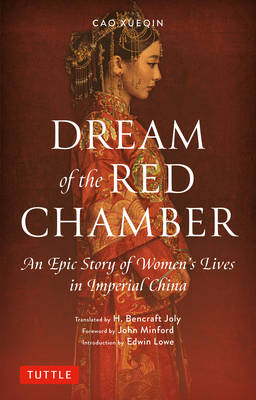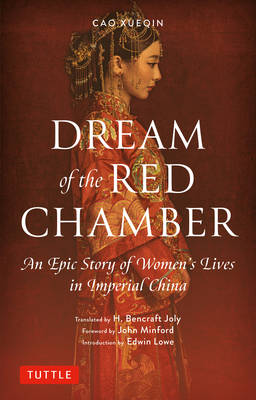
- Retrait gratuit dans votre magasin Club
- 7.000.000 titres dans notre catalogue
- Payer en toute sécurité
- Toujours un magasin près de chez vous
- Retrait gratuit dans votre magasin Club
- 7.000.0000 titres dans notre catalogue
- Payer en toute sécurité
- Toujours un magasin près de chez vous
34,95 €
+ 69 points
Format
Description
"One of the great novels of world literature...to the Chinese as Proust is to the French or Karamazov to the Russians." --Anthony West, literary critic Dream of the Red Chamber (also known as The Story of the Stone) is renowned for its epic scope, rich psychological characterizations and telling observations on family life and the role of women in Chinese society. One of the Four Great Classical Novels in Chinese literature, along with Journey to the West, The Water Margin, and Romance of the Three Kingdoms; Dream of the Red Chamber is widely regarded as the greatest Chinese classical novel, and one of the greatest works of world literature ever written. The "red chamber" refers to a sheltered area in wealthy households where daughters were confined until married--a veritable prison where dreams of true love wither. This sweeping tale tells of the rise and fall of rival branches of the wealthy Jia family, who live in lavish adjacent compounds surrounded by a lush, private garden. The story opens with the birth of Jia Baoyu, heir apparent and darling of the women in the Jia household. A free-thinker and idealist, Baoyu soon rebels against his stern father, who refuses to allow his son to pursue a romantic affair with Lin Daiyu--a headstrong and intelligent woman who shares his love of music and poetry. Baoyu is forced instead to marry Xue Baochai, an equally talented and beautiful woman but someone with whom he has no emotional connection. The fates of the star-crossed lovers and their families slowly unravel as this tragic story unfolds. Dream of the Red Chamber, although written by a man, is said to be one of the first great works of women's literature. The author, Cao Xueqin, is thought to have written the novel as a memorial to the inspiring women he knew in his youth.
Spécifications
Parties prenantes
- Auteur(s) :
- Traducteur(s):
- Editeur:
Contenu
- Nombre de pages :
- 992
- Langue:
- Anglais
- Collection :
Caractéristiques
- EAN:
- 9780804856744
- Date de parution :
- 15-08-23
- Format:
- Livre broché
- Format numérique:
- Trade paperback (VS)
- Dimensions :
- 135 mm x 203 mm
- Poids :
- 703 g

Les avis
Nous publions uniquement les avis qui respectent les conditions requises. Consultez nos conditions pour les avis.






